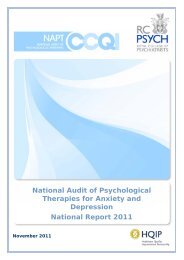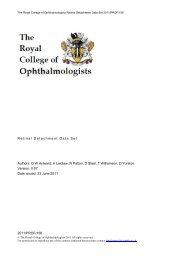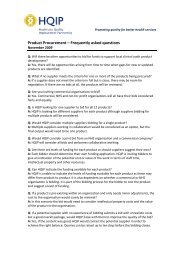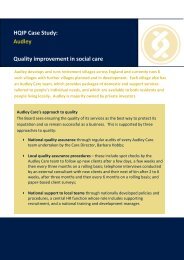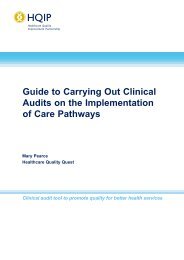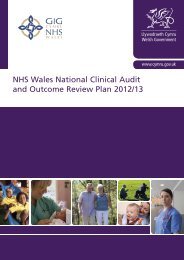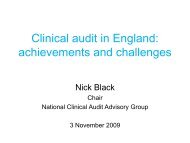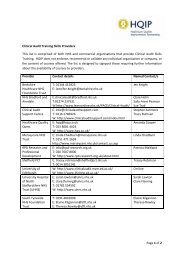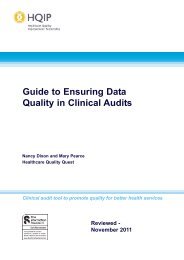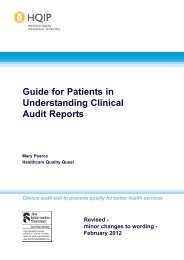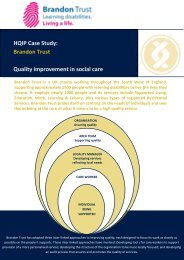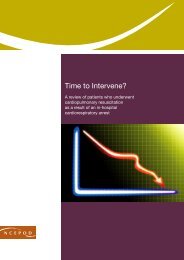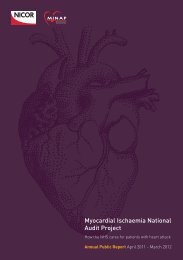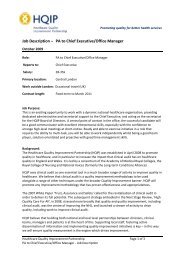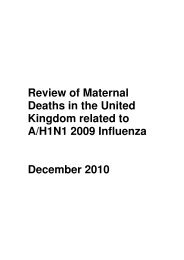Good Governance Handbook - HQIP
Good Governance Handbook - HQIP
Good Governance Handbook - HQIP
You also want an ePaper? Increase the reach of your titles
YUMPU automatically turns print PDFs into web optimized ePapers that Google loves.
• the decision-maker does not have power to make the decision, or is using<br />
their power improperly<br />
• the decision is irrational<br />
• the procedure followed by the decision-maker was unfair or biased<br />
• the decision was in breach of the Human Rights Act or<br />
• the decision breaches European Community (EC) law.<br />
The Public Law Project Information Leaflet 2 39 points out that If an application for<br />
judicial review is successful, the court has available to it six possible remedies:<br />
• Quashing Orders: The original decision is struck down and the public body has<br />
to take the decision again (lawfully, this time).<br />
• Prohibiting Orders: The public body is forbidden from doing something<br />
unlawful in the future.<br />
• Mandatory Orders: The public body is ordered to do something specific which<br />
it has a duty to do.<br />
• A declaration: For example, on the way to interpret the law in future, or a<br />
declaration that a legislative provision is incompatible with the Human Rights<br />
Act.<br />
• An injunction: This is usually a temporary remedy until the full application for<br />
judicial review is heard.<br />
• Damages: This is rare, but may be available in some cases, particularly where<br />
there has been a breach of an individual’s rights under the Human Rights Act.<br />
All of these remedies are discretionary – the Judge does not have to order any<br />
remedy at all. More than one can be applied for in any particular case.<br />
To avoid judicial reviews check whether the decision or action of the public body is:<br />
• lawful<br />
• rational<br />
• fair and procedurally correct<br />
• likely to withstand legal challenge; or<br />
• supported by documentary evidence showing that it was properly taken.<br />
6.9 Conflicts of Interest<br />
The NHS, like other public bodies, requires high levels of probity and is subject to<br />
public scrutiny. It is important that board members do not act in a way that would<br />
compromise the reputation of the organisation.<br />
Any interest that might compromise the organisation should be declared - if in doubt,<br />
declare. Board members should also check that their declarations have been recorded<br />
and adequately scrutinised.<br />
It is good practice for the Chair of the board to ask for any new potential conflicts at<br />
39 http://www.publiclawproject.org.uk/downloads/WhatIsJR.pdf<br />
www.good-governance.org.uk 30



